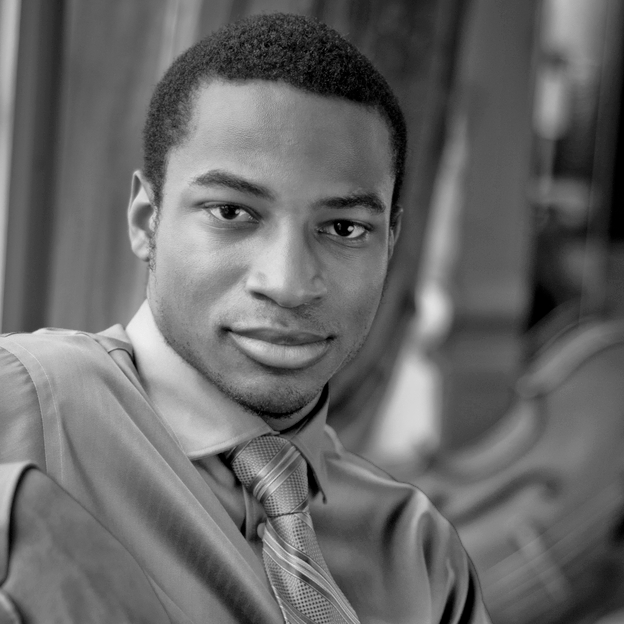Foley: Soul Bass
by Chris Vaneman
We tend to talk about careers as having “arcs” or “trajectories,” but neither of those words quite does justice to Xavier Dubois Foley’s young career. “Rocket-like ascent” would probably be more accurate, and Foley’s rocket-like ascent is still very much in process, so there’s no telling just how high into the firmament he’ll end up.
Foley grew up in the Atlanta area, and is an alumnus of the Atlanta Symphony’s excellent Talent Development program, which offers high-level training to students from a diverse variety of backgrounds. He went from there to the Curtis Institute (which is like Juilliard but smaller and more exclusive, if you were wondering whether such a thing is possible), then won the Sphinx Competition while still a student. A win of the Young Concert Artist competition was followed by the Avery Fisher Career Grant, which is doubtless the most prestigious feather a young American musician could add to his cap.
Many game-changing virtuosos on their instruments (think Chopin, Liszt, Paganini, Jimi Hendrix, etc.) began the second career for which they’re even better known -- composing -- by writing music for themselves to play. Foley studied with the Grammy-winning bassist Edgar Meyer, and Meyer is as well-known among jazz and bluegrass fans as he is among classical ones; similarly, Spartanburg audiences thrilled to Bela Fleck’s Banjo Concerto just a few years ago.
So, it isn’t surprising that Foley began to compose, and it isn’t surprising that Soul Bass, the concerto he premiered with the Atlanta Symphony last year, should bear influences from a popular genre of music that the composer has known since childhood. But whereas Meyer’s and Fleck’s music both display influences from the jazz and bluegrass they play together, Foley’s tips its cap to the music of its composer’s youth – and in particular “Soul Train,” the iconic televised dance party that ran for 30 years at the end of the 20th Century and the beginning of this one.
Concertgoers of a certain age will remember “Soul Train” host Don Cornelius’ majestic Afro, and much of Soul Bass swaggers with Cornelius’ preternatural sense of cool. And while soul music as a genre is characterized by a rock-solid, strutting bass (think Wilson Pickett’s “In the Midnight Hour,” or pretty much every Motown song ever), just as important to the music’s impact is a great singer: once Aretha Franklin starts singing, for instance, does anyone even notice the bass line? Likewise, Soul Bass's opening movement lays down a groove, and then the soloist quickly climbs up to his instrument’s highest notes, and swoops and dives in that register in a way that could only be called Aretha-esque. Soul Bass's second movement evokes a solo song in much the same way that the second movement of Dvorak’s “New World” Symphony does, and its closing Fugue places its driving and groovy theme squarely into the middle of European tradition. Soul Bass showcases its composer’s unique and distinctive cultural voice just as much as it does his extraordinary instrumental virtuosity.

